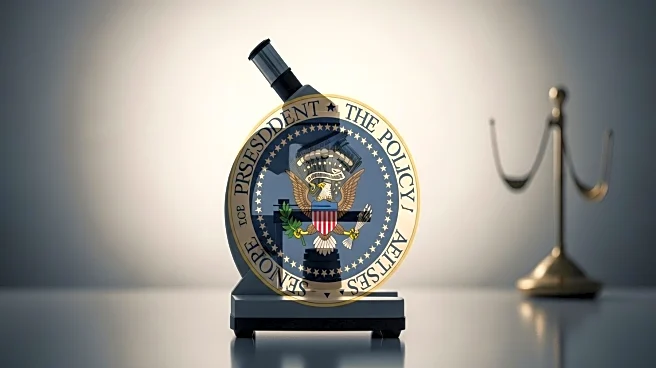What's Happening?
U.S. Health Secretary Robert F. Kennedy Jr. has emphasized the need for the Centers for Disease Control and Prevention (CDC) to align with President Trump's agenda, following the firing of CDC Director Susan Monarez and the resignation of several top officials. The White House stated that Monarez was dismissed for not supporting the president's health agenda. Kennedy, known for his controversial views on vaccines, has made significant changes to the CDC's vaccine policies, including replacing expert advisory panel members with individuals who share his skepticism. These actions have sparked criticism and concern over the CDC's direction and its role in public health.
Why It's Important?
The leadership changes at the CDC and Kennedy's push for alignment with President Trump's agenda have far-reaching implications for public health in the U.S. The CDC is a key player in managing infectious disease outbreaks and vaccine policy. The recent upheaval raises questions about the agency's independence and its ability to make science-based decisions. The involvement of Kennedy, who has a history of anti-vaccine activism, could lead to shifts in vaccine policy that may affect public health outcomes. The situation underscores the potential impact of political influence on scientific institutions and public trust in health recommendations.
What's Next?
The future of the CDC's leadership and vaccine policy will likely be a focus of congressional oversight. The Senate Health, Education, Labor and Pensions Committee is expected to investigate the recent changes and their implications for public health. Additionally, Kennedy's upcoming testimony before the Senate Finance Committee will provide an opportunity for lawmakers to question his actions and the direction of the CDC. The outcome of these inquiries could influence the CDC's ability to operate independently and maintain public confidence in its health recommendations.











